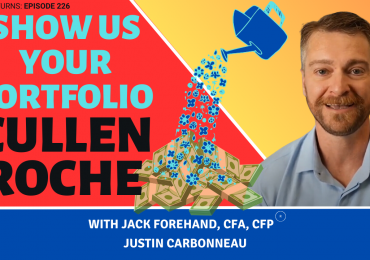By Jack Forehand (@practicalquant) —

It has been a long time since inflation was a major issue in the US economy. Unless you have been investing forty years, you have likely never experienced a situation where inflation was a significant concern for your portfolio.
But with the federal deficit rising and US government debt at historically high levels relative to GDP, many investors worry that the days of benign inflation and low interest rates are coming to an end. Some even worry that the US government won’t be able to pay back its debt.
A growing number of economists think those concerns are off base, though. An economic theory that takes the other side of that argument has been rising in importance, and it will likely play a significant role in the upcoming presidential election since some of the Democratic candidates have come out in support of it.
Modern Monetary Theory argues that because the US Government issues debt in its own currency, and it has the ability to create more of that currency, the risk of default is nonexistent. It also argues that the true concern with respect to rising deficits should be inflation. And since inflation has been in check for a long period of time, the theory contends that the government has the ability to run larger deficits than many economists think.
I am far from an expert in the area, though, so I wanted to use our interview this week to talk to one. Cullen Roche is the founder of the Orcam Financial Group and the author of the excellent Pragmatic Capitalism blog. His ability to take complex topics and make them easy to understand, and his willingness to look at both sides of any issue make him the perfect person to talk to about this topic.
Before we start, just one other note. Topics like this are certainly politically charged today, but the point of talking about it here is not to support this theory or reject it. The goal is to take a complex theory that will likely have significant implications going forward for both our economy and the markets and to try to understand what it is and what it means (because of the complexity of this issue, we did seven questions instead of our usual five).
With that said, here is our discussion of Modern Monetary Theory.
Jack: Thank you for taking the time to talk to us.
Since I am not an economist, gaining a basic understanding of this theory has been challenging for me. When you search for Modern Monetary Theory on Google, the results that come back certainly don’t help much since even the Wikipedia definition is incredibly complex. So I thought a good first step would be to explain what it is. As I mentioned in the intro, the theory seems to support the thesis that in a world of benign inflation, the government may have a capacity to run larger deficits than many think it can. But I know the theory is more complex than that and also focuses on the role that government plays in creating unemployment. Can you provide a basic definition of Modern Monetary Theory and the types of policies that those who support it would endorse?
Cullen: Hi guys. Thanks for having me. I’ll do my best not to put you to sleep with econ talk.
MMT is a very confusing theory with some innovative ideas and some relatively confused ideas. There’s a lot to it and it’s taken me years to completely digest the complexity of their ideas. They’re a smart group of people. But after years of digesting all of it I’ve come to the conclusion that while there is much good about MMT there are a few blind spots in it. Let’s jump in.
MMT is a macroeconomic theory of full employment and price stability that argues that the government is the monopoly supplier of currency. In essence, MMT argues that the government is the issuer of money, therefore, it can always afford to buy anything denominated in its currency. It cannot run out of money because it can print money. Also, because the government can print money, it does not need tax revenue to be able to spend. It can simply print more money. Therefore, in the MMT world taxes do not “fund” spending and spending actually creates money. In fact, MMT argues that the government must spend money to make net financial assets available to the private sector and satisfy the private sector’s need to pay taxes and save.
MMT argues that the government creates all sorts of problems when it creates a monetary system. In addition to requiring everyone to obtain government money to pay taxes, MMT also argues that the government causes unemployment if it does not create enough money to supply jobs for everyone. They argue not only that the government should run deficits to resolve this issue, but that it will need to provide jobs through a Jobs Guarantee program. The Job Guarantee is the crux of MMT as it supposedly resolves the problems of unemployment and price stability.
Many people think that MMT says deficits don’t matter or that government debt doesn’t matter. But MMT does not say this. They argue that the real constraint for a government is inflation and not its ability to obtain money as is constraining for a household or business.
Jack: I always like to begin looking at any theory by imagining what the world would look like if it was implemented. If we take the optimistic side and assume the supporters of MMT are correct, and we began implementing the types of policies this theory would endorse tomorrow, what might the world look like in five years? What is the best-case scenario for something like this?
Cullen: The US economy could look very different under a true MMT regime. The key difference being the Job Guarantee program which would offer a job at a living wage for anyone willing to work. The Center on Benefits and Policy Priorities estimates that a Federal Job Guarantee would cost $546 billion per year. The deficit in 2018 was almost $800 billion so we’re talking about a lot more government spending than we already have.
MMT also advocates consolidating the Fed into the Treasury and essentially ending traditional monetary policy. Instead, interest rates would be set permanently at 0% and the government would try to control inflation by raising and lowering taxes while utilizing the Job Guarantee as a wage price control mechanism.
Of course, it’s impossible to say how this would really play out. I’ve expressed skepticism of a program like a Job Guarantee because nothing like this has ever been tried in a developed world economy. There is virtually zero reliable evidence supporting the claims they make about its efficacy.
Importantly, the thing that worries me most about MMT is its actual inflation controlling mechanism. First, they argue that we can use taxes to control inflation. But that would require discretionary changes in tax policy that are generally slow to pass. Second, if we tried to control the budget using an inflation based approach we would need Congress to try to constantly predict what the future rate of inflation is before passing new legislation. How would this actually work in practice and how reliable are future predictions of inflation? Not very reliable in my view so I worry about implementing this in a practical manner.
Jack: We have been in an extended period of low inflation, and technology and globalization have both played an important part in that. Technological progress seems like a safe bet to continue, but we are now in a period where nationalism is rising, and that could serve to reduce the impact of one of those disinflationary trends. Are these two disinflationary forces a major reason that this type of policy could work now and would rising nationalism be a threat to our ability to enact the type of policies MMT supporters would endorse without causing inflation?
Cullen: This is not the first time in US history that a period of low inflation convinced people that the government could afford to be much more involved in the economy. Coming out of the Depression and 2nd World War inflation was extremely low and the economy was generally depressed. The war time efforts and a bout of government spending resulted in deficits that were well north of 100% of GDP.
The interesting thing about MMT is that it would never be popular in a high inflation environment. In fact, I suspect it would be completely discredited in a high inflation environment. And therein lies the rub. MMT assumes that the government can sufficiently control inflation with taxes and the Job Guarantee. While I am far from a hyperinflationist I think there’s good reason to be skeptical of this idea. In fact, economists still don’t know what really causes inflation and while it looks like governments have far more capacity than traditional economic theory suggests, it’s still clear that governments often struggle trying to control the rate of inflation. With these policies being largely untested it’s impossible to say whether MMT would succeed where many governments have failed.
Regarding technology and globalization specifically – I’ve been a vocal predictor of low inflation for the last 10+ years and these two trends are a big part of that view. But I do believe the government could create high inflation if they tried hard enough. The interesting thing about MMT is that they’ve shown that that limit is higher than most people believe. But I am not sure I want to see how far we can push the current limit given how little we know about what really causes inflation and how to control it.
Jack: One of the challenges I would think a theory like this would present is that it is unproven. As with any theory, its true impact will likely not be known until it is implemented in practice. But with economic policies, there is always a lag, and sometimes by the time you know the implications it can be too late to reverse them. And if this policy resulted in spending more money to give benefits to people, taking those benefits away if it doesn’t work or raising taxes to cover them would be challenging politically. What do you think the process of testing something like this would look like and how difficult would it be to undo if it didn’t work?
Cullen: There have been smaller Job Guarantee style programs in India and Argentina, however, a full MMT style policy regime has never really been tested. There are cries for such policies to be enacted in full right now. See AOC’s Green New Deal for instance. This worries me to be honest. It’s not that I am against big bold policies. I actually think there are parts of the Green New Deal that are excellent. But I work from an evidence based view in life. In my opinion it is entirely reckless to try something that would cost $546B per year without even having tested it. I think a more pragmatic view would be to test the program in some form so economists can begin to weigh the impact.
What does that mean exactly? Who knows? Perhaps a bold state will try it? I propose throwing Minnesota to the wolves. They are such nice people and maybe this would make them mean and grouchy like the rest of us? Or, better yet, it would work fabulously and then the rest of us can look forward to being happier like Minnesotans?
Jack: I was listening to an interview with Professor Jason Furman from Harvard on Bloomberg recently and he argued in support of this theory, but he also argued that there is a limit to it. He believes that the current deficit is not as big of an issue as people think it is, but he also maintained that we shouldn’t expand it and should pay for any future programs that would grow the deficit with additional tax revenue. His point was that he believes that our economy is in a position to handle larger deficits, but that there is a limit to that. Others who support things like the Green New Deal argue that there is virtually no limit to what can be spent without causing significant issues. I assume the limit to something like this could be hard to identify in advance so I was wondering if you could talk about how we would go about striking that balance of taking advantage of the fact that we can run greater deficits than we could historically, but also not crossing that line where it becomes too much.
Cullen: Households go bankrupt in nominal terms (ie, we literally run out of money when we run out of viable counterparties). Governments go bankrupt in real terms when non-government sector counterparties re-price government money lower and lower in value (ie, rising inflation leading to hyperinflation). We still don’t know the exact causes of inflation, but it’s clear that hyperinflation tends to be unusual macro exogenous events such as a collapse in production, war, real resource crisis, etc. So yes, there are very real limits to what the government can spend and contrary to what MMT claims, “funding” is definitely one of those constraints. But we don’t really know what that limit is and what causes it to be reached and that’s the most worrisome part about MMT. Not only do they not have a coherent theory of inflation, but I don’t trust their tools to control inflation if/when it gets out of control.
Let’s think about this logically. As I mentioned before, you would need Congress to set the budget by trying to predict future rates of inflation. So, let’s say inflation is creeping into the high single digits. What is Congress going to do? Are they going to raise taxes quickly? Are they going to reduce wages via the Job Guarantee? Are we going to have a government that can be relied upon to do these things quickly and in agreement? Maybe I know too many politicians, but call me skeptical.
Jack: Since our blog is primarily focused on the stock market, I wanted to spend some time talking about what all of this could mean for equities. If we begin enacting the types of policies supported by advocates of MMT, I would assume the implications could include higher interest rates, a weaker dollar and potentially more inflation than we have now (although the extent of that is up for debate). In a world where MMT governs our policies, what do you think the implications would be for the stock market?
Cullen: Again, impossible to know since this has never been tested anywhere. But one thing we know is that stocks often perform very well in hyperinflations and even in high inflations over longer periods of time. US stocks compounded at 7% per year in the 70’s despite high inflation. Of course, it makes for a tumultuous ride. Especially for the diversified investor who holds bonds and cash. Our portfolios would likely become much more volatile as inflation creates more price uncertainty and makes corporate management much more unpredictable. I’m not generally one to recommend commodities and gold, but if the USA adopted a true MMT style regime I would probably want to be aggressively hedging a portfolio for high inflation and potentially much higher inflation.
Jack: One of the more interesting areas of this for me is the interaction between fiscal and monetary policy. If a policy like this were to have an effect on inflation, then I would assume it would also have an effect on Federal Reserve Policy and that may lead the Fed to raise short-term rates more than they otherwise would have. But I have also heard some MMT supporters argue that Fed rate hikes have the opposite of their intended effect and actually cause more inflation. How do you think the balance between monetary and fiscal policy would change in a world where MMT was driving policy decisions?
Cullen: MMT people do not believe Monetary Policy is very effective. This is why they would prefer to consolidate the Fed into the Treasury and implement a permanent 0% interest rate. So, MMT is about emphasizing fiscal policy more and monetary policy less. I think the emphasis on fiscal over monetary is largely right, but I think MMT overreaches when they say we should consolidate the Fed and Treasury and leave rates at 0%. The Fed and Monetary Policy might be an imperfect tool, but I’d rather have that tool and not need it than need it and not have it.
Jack: Thank you again for taking the time to talk to us today. If investors want to find out more about you and Orcam Financial Group, where are the best places to go?
Cullen: I can be found on Tinder and Snapchat mostly. I’ve been married for a long time, but I am always keeping my options open.* Just kidding! I write regularly at Pragcap.com and you can find me making lots of bad jokes on Twitter using handle @cullenroche
Thanks for having me. I hope everyone finds a nugget or two in here that is useful.
*The success of that joke is contingent on my wife not reading this.
Photo Credit: 123rf.com / olivier26








